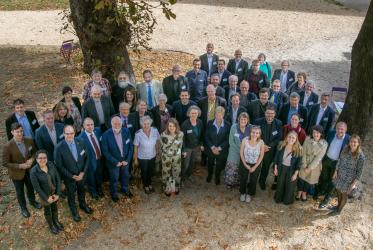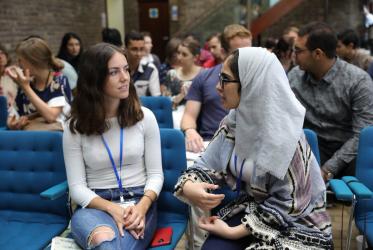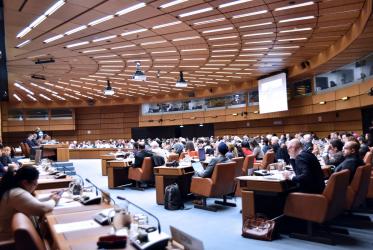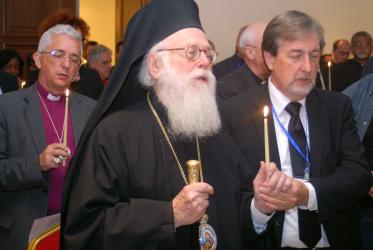Displaying 1 - 20 of 28
11 - 13 February 2021
WCC well-represented in Religions for Peace leadership
07 October 2019
Fr Alexi - a peacemaker in Syria
21 December 2018
Turning plans into action to prevent incitement to violence
14 February 2018
Religion: Way of war or path to peace?
30 June 2016
WCC/UN conference calls for coordinated action on refugee crisis
20 January 2016
Rebuilding a smashed church in Albania
23 December 2015
WCC Executive Committee works toward a future of peace and justice
19 November 2015
WCC strongly condemned terror attacks
14 November 2015
WCC more united in the pilgrimage of justice and peace
13 November 2015















